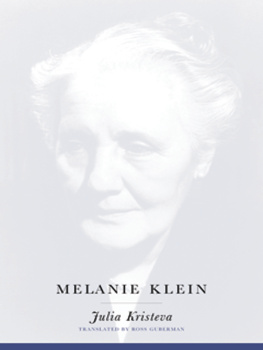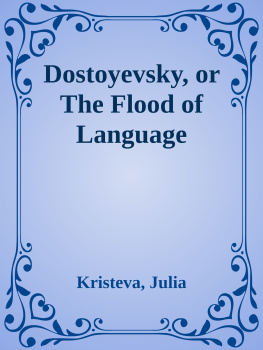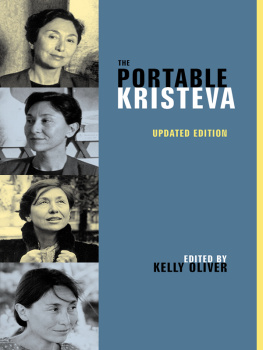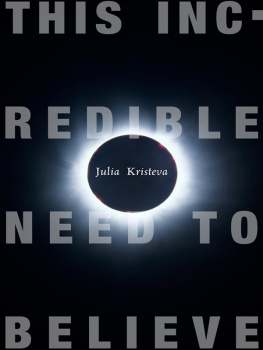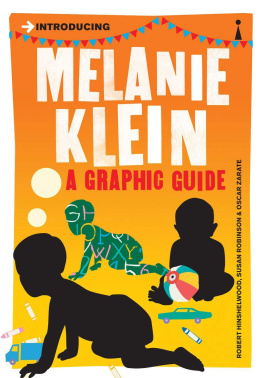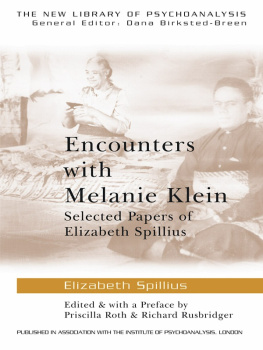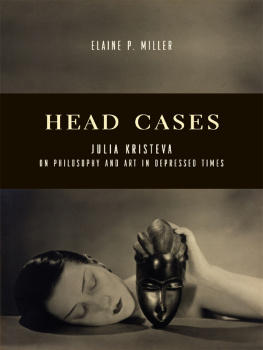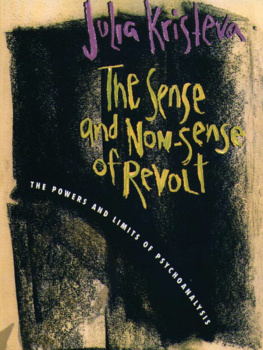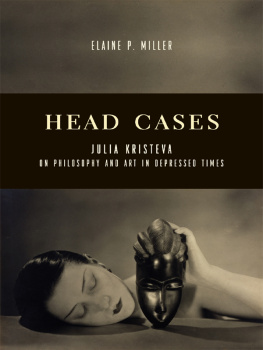MELANIE KLEIN
Melanie Klein is volume 2 of Female Genius: Life, Madness, Words
Hannah Arendt, Melanie Klein, Colette, a trilogy by Julia Kristeva.
EUROPEAN PERSPECTIVES
EUROPEAN PERSPECTIVES
A Series in Social Thought and Cultural Criticism
Lawrence D. Kritzman, Editor
European Perspectives presents outstanding books by leading European thinkers. With both classic and contemporary works, the series aims to shape the major intellectual controversies of our day and to facilitate the tasks of historical understanding.
For a complete list of books in the series, see
Melanie Klein
by
Julia Kristeva
Translated by Ross Guberman

COLUMBIA UNIVERSITY PRESS NEW YORK
COLUMBIA UNIVERSITY PRESS
Publishers Since 1893
New York Chichester, West Sussex
cup.columbia.edu
Copyright 2001 Columbia University Press
Le Gnie fminin, Melanie Klein Librairie Arthme Fayard, 2000
All rights reserved
E-ISBN 978-0-231-51803-1
Library of Congress Cataloging-in-Publication Data
Kristeva, Julia, 1941
[Melanie Klein. English]
Melanie Klein / by Julia Kristeva; translated by Ross Guberman.
p. cm.(European perspectives)
Includes bibliographical references (pp. 27784) and index.
ISBN 0231122845 (cloth: alk. paper)
1. Klein, Melanie. 2. Women psychoanalystsBiography.
I. Title. II. Series.
BF109.K57 K75 2001
150.19'5'092dc21 2001042226
A Columbia University Press E-book.
CUP would be pleased to hear about your reading experience with this e-book at .
CONTENTS
VOLUME TWO
Madness
Melanie Klein
or matricide as pain and creativity
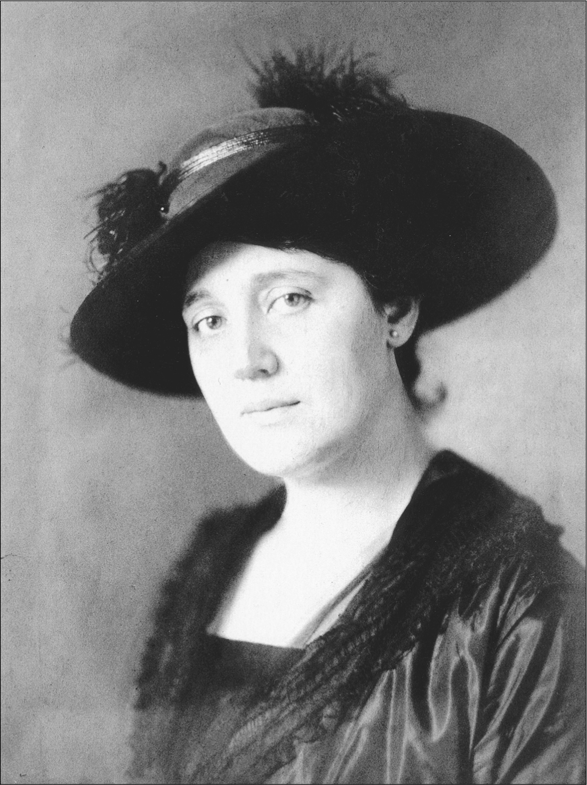
FIGURE 1. Melanie Klein in 1912, aged about 30. (With the permission of the Melanie Klein Trust, and courtesy of the Wellcome Library, London.)
A woman of character & force some submerged
how shall I say?not craft,
but subtlety; something working underground.
A pull, a twist, like an undertow: menacing.
A bluff grey haired lady, with large bright imaginative eyes.
The Diary of Virginia Woolf
Than soul, live thou upon your servants loss [ ]
So shalt thou feed on Death that feeds on men,
And, Death once dead, ths no more dying then.
William Shakespeare, Sonnets, 146
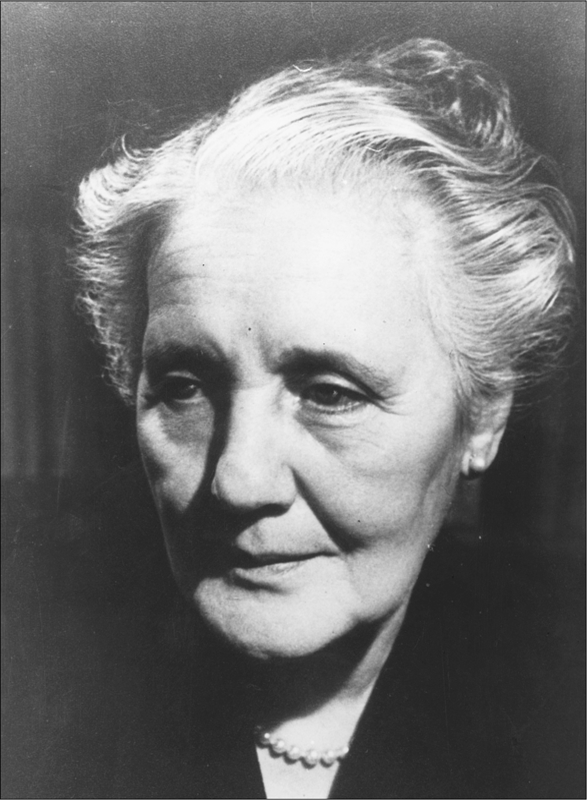
FIGURE 2. The psychoanalyst. (With the permission of Keystone, Paris.)
INTRODUCTION: THE
PSYCHOANALYTIC CENTURY
Men are so fundamentally mad that not to be mad
would amount to another form of madness.
Blaise Pascal, Thoughts
1925: Shes a dotty woman. But theres no doubt whatever that her mind is stored with things of thrilling interest. And shes a nice character. That was how Alix Strachey described Melanie Klein to her husband, James Strachey, who would become the celebrated editor and translator of the Standard Edition of Freuds writings and who was one of the leaders of the acclaimed Bloomsbury group in London. While Alix and Melanie were in Berlin together, they were analyzed by Karl Abraham and spent their evenings dancing in leftist bars of a more or less popular vein.
1957: Three decades later, Melanie Klein had achieved international renown as the founding mother of child analysis and, as a reformer in the wake of Freud, of the psychoanalysis of adults, particularly psychotics. As she wrote in Envy and Gratitude:
My work has taught me that the first object to be envied is the feeding breast, for the infant feels that it possesses everything he desires and that it has an unlimited flow of milk, and love which the breast keeps for its own gratification. This feeling adds to his sense of grievance and hate, and the result is a disturbed relation to the mother. If envy is excessive, this, in my view, indicates that paranoid and schizoid features are abnormally strong and that such an infant can be regarded as ill. [In its later forms,] envy is no longer focused on the breast but on the mother receiving the fathers penis, having babies inside her, giving birth to them, and being able to feed them.
It is particularly creativeness which becomes the object of such attacks. Thus Spenser in The Faerie Queene describes envy as a ravenous wolf. This theological idea seems to come down to us from St Augustine, who describes Life as a creative force opposed to Envy, a destructive force. In this connection, the First Letter to the Corinthians reads, Love envieth not.
Melanie Klein has since become a major figure of indisputable worthjust like the psychoanalysis that she practiced so ingeniously.
At the dawn of the third millennium, the discovery of the unconsciouswhether it is considered to be a magnificent experience that has permeated our culture or an insignificant misperception under savage attack in certain quartersremains an enigma. A century after the term unconscious first appeared, we still have not fully absorbed the Copernican revolution launched by Sigmund Freud and his disciples. Psychoanalysis, which is a product of religion and philosophy as well as of late nineteenth-century medicine and psychiatry, has destroyed those disciplines only to rebuild them. In so doing, it has endorsed the idea that the human soul, which is bound up with the body and language, can not only be understood but, as a locus of pain that is vulnerable to destruction and even death, can become a privileged realm of rebirth as well.
With a passion typical of those who explore the unknown, the pioneers of this discovery made it the core of their very existence. In that spirit, they developed a new form of knowledge that reshaped classical rationality by expanding it to include the imaginary, which strengthens the bonds between two speaking beings. Although many people have been suspicious (and continue to be suspicious) of psychoanalysisthink of Heidegger and Nabokov, to name just the most outspoken criticssome of the most creative men and woman of the twentieth centuryfrom Virginia Woolf to Georges Bataille, from Andr Breton to Jean-Paul Sartre, from Romain Rolland to Gustav Mahler, from Andr Gide to Emile Benveniste, and from Charlie Chaplin and Alfred Hitchcock to Woody Alleneither have read Freud or have lain themselves down on the psychoanalytic couch so they might better understandor at least experiencethis innovative path to self-knowledge, one that is both the precursor of a new form of freedom and a turning point in the history of civilization.
The fratricidal and institutional rifts that have accompanied and disrupted the psychoanalytic movement from its earliest daysand, in fact, throughout all its early historyresult from more than just psychotherapists close proximity to the very insanity that they endeavor to treat (which is what critics of psychoanalysis suggest). These rifts have not resulted solely from the truths that are often disclosed when powerful drives and words defy the conventions of civilized society. Rather, and more significantly, a more nuanced analysis reveals that the infighting within the analytic movement reflects the cruelty that is endemic to all of human culture precisely because innovations occur only at the outer bounds of possibility.
Mental illness, in fact, is what Freud and his accomplices considered to be the royal road toward understanding and liberating the human soul. Before Freud, many moralists and writers, particularly in France, took a first step down that path by describing the madness that lies at the heart of the human soul. Isnt it true that these precursors to Freud proposed a way of thinking about excess that flies in the face of the doctors and psychiatrists who relegate such excess to the realm of pathology alone? In fact, what do we make of madness when it is seen through the civilized lens of a La Rochefoucauld who wrote, He who lives without madness is not as wise as one might imagine or through the infernal knowledge of a Rimbaud who proclaimed, Unhappiness has been my god. I have lain down in the mud, and dried myself in the crime-infested air. And I played the fool to the point of madness. Madness must not be ignored or brushed aside, but spoken, written, and thought: it is is a formidable transitory state, a tireless source of creativity.
Next page
